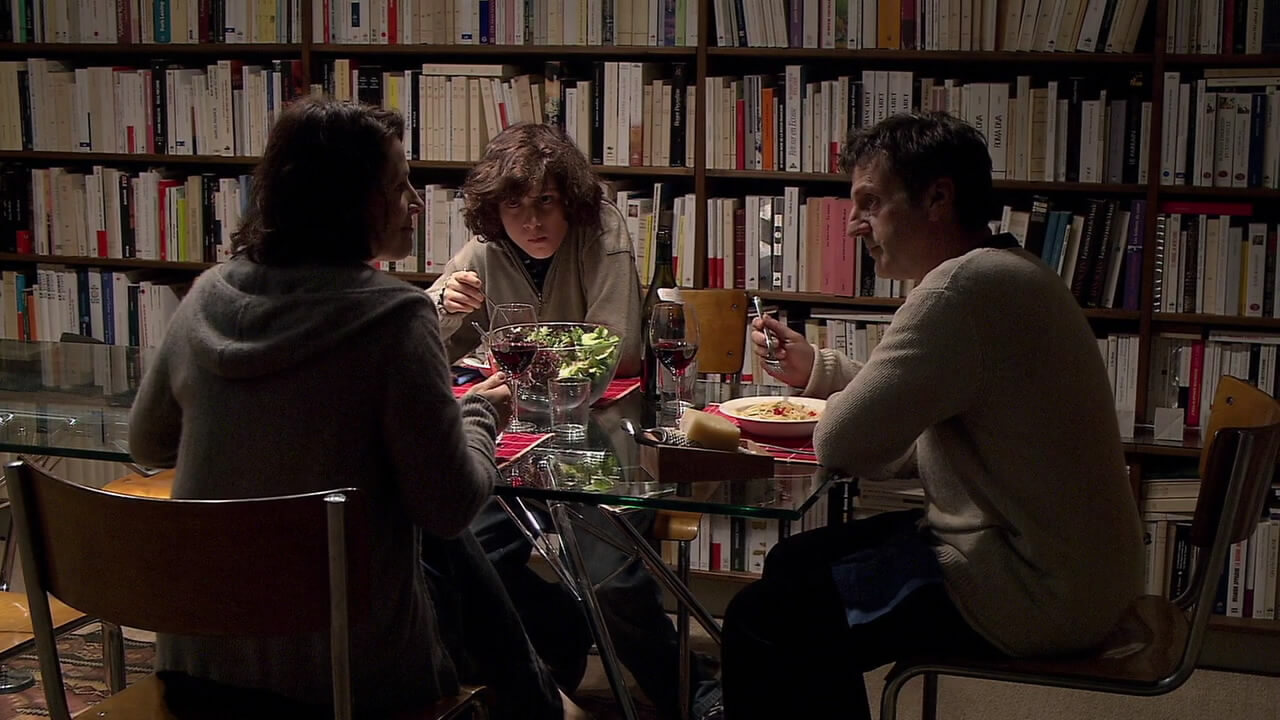Directed by Michael Haneke, Cache [2005] follows a bourgeois French family that starts receiving videotapes of their own home from an anonymous sender.
Establishing Shots. There are many famous opening shots throughout film’s history. While some use spectacle, others use simplicity. The opening shot can set a tone or create a thematic backing that the audience will recognize during the film. Michael Haneke has a special relationship with the audience because of his unique skill at involving them with the film unexpectedly. Cache’s opening shot sets a precedent for photography that is consistent and creative until the film’s final moment. Paying attention to the style of photography, specifically during point-of-view shots, is important to understanding Cache’s opening shot, the message it’s conveying, and many key moments during the film. Over ten years since its initial release, Cache still manages to spark spirited debates about what we see, what we don’t see, why, and what it all even means. But Cache’s strongest asset isn’t unknowable or debatable, but the film’s delicate balance between story and concept. The film feels complete in the sense that everything from the technical to the undefinable was considered and streamlined. The photography during the film helps structure an experimental concept, but even this is backed by a necessary social commentary. A film that criticizes the bourgeois, self-satisfied intellectuals of Paris while also addressing the audiences and their voyeuristic fetishes. From the Paris massacre of 1961, to hints of marital infidelity, Cache is a film rich with ideas, tragedy, and character. It feels as grounded in reality as our own lives. Cache, which is largely about lives being disrupted (a major theme that Haneke explores), takes its time with the scenes and the editing. We’re shown their lives, and we’re shown the interruptions they encounter and attempt to understand. The style lends itself well to the story which helps bring out an unnerving realization. Despite the mystery of the film, we already know the answer to one question: Who is watching these characters?
Where Do You Come From? There is a cultural aspect to Cache that could be lost on some audiences. The Paris massacre of 1961 is directly referenced, and it falls in line with similar topics the film brings up. The title of the movie is Cache (Hidden), and so are our pasts. There are moments in our lives that we bury, cover up, and never bring out intentionally. But how would you respond if those moments were not only uncovered but were used as a way to exploit you? It’s a terrifying concept and the direction and writing show great restraint. We’re only given as little information as needed to move through a scene, and sometimes the audience is expected to wait in order to fully understand something later. Haneke describes his films as “polemical statements against the [unthinking] American cinema and its disempowerment of the spectator.”1 While this is certainly the case in many of his films, it might be the most demonstrably present in Cache. Similar to the dense layering in Adaptation, Cache uses its name, concept, story, and message together to create one solid piece. Everything can be examined in multiple ways: as a story, as a criticism, and as a style.
Pulling Out The Hidden. The actors in Cache are put into very difficult roles. Each actor must convey many multifaceted and complicated emotions in a grounded and nuanced manner. It’s refreshing and painful to watch how convincingly their lives unfold. With no use of music, silence carries a weight that the audience must bear. The photography is smooth and often still, mimicking the very tapes delivered to Georges and Anne. When moments are revisited, there are fresh perspectives and new information to learn. The pacing is slow yet steady and the ending is appropriate in relation to the rest of the film. It is a film about privacy, secrets, and guilt. Blame, repression, and self-interest. Ultimately, we watch the film and are forced to reflect inward, as we can all relate to many of the actions Georges and Anne take. It’s interesting how quickly people become afraid of the idea that they’re being watched. What is it behind this idea that is so startling and aggressive and repugnant? When we are watched, suddenly our actions have a realness to them that doesn’t exist when we are alone. There is a realness to our actions that may not show itself immediately, as well, and perhaps that’s what the film is hoping we’ll take away from it. Cache presents itself as clearly as it can, but it still baffles and enrages audiences. The motives, the meanings, and the reasons aren’t always explicitly stated, but that doesn’t mean they aren’t there. If we cannot always see the significance of the things we do every single day, in the open or in secret, why should we demand to see the significance of everything in a film titled Cache?
A complicated film with hidden simplicity about guilt, responsibility, and all things swept under the rug.

